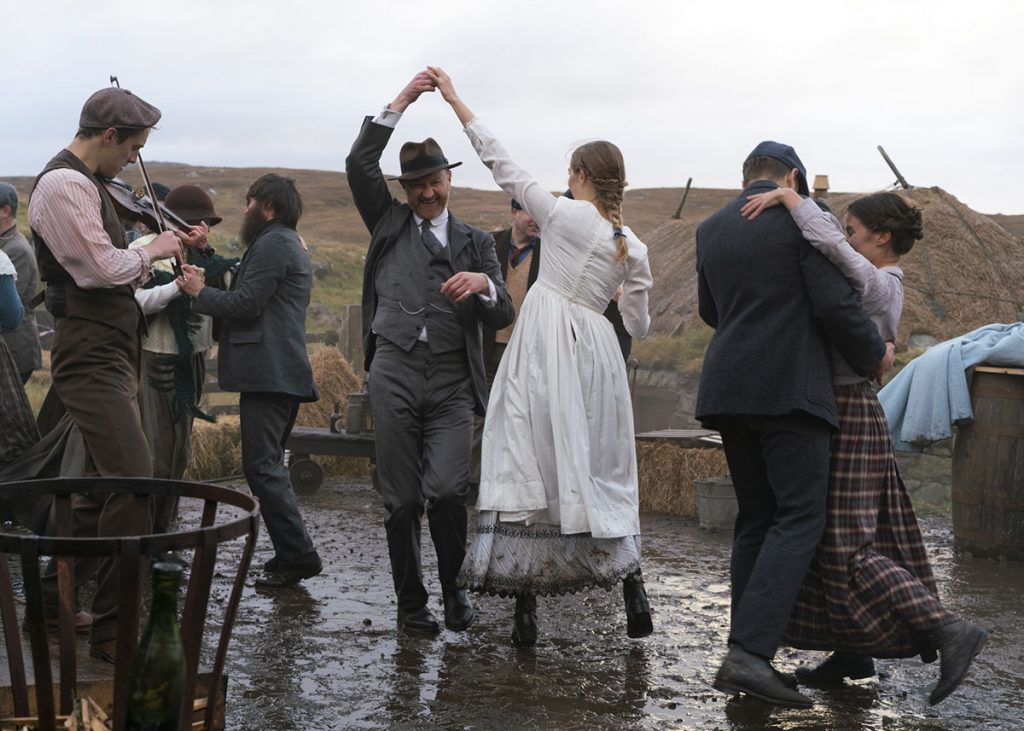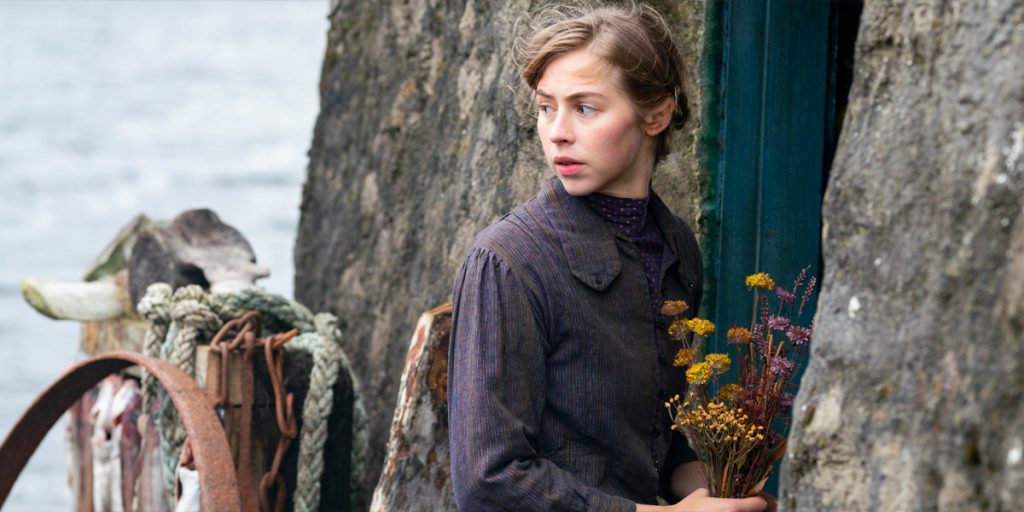Richie Adams’ The Road Dance is a thoughtful tale of grief and hope, as well as a visually stunning reflection of the harshness of life on the Hebrides in WW1.
Against the rural backdrop of the Scottish Hebrides, Richie Adams’ The Road Dance, adapted from the critically acclaimed novel from John MacKay, tells a pretty bleak tale of grief, trauma and community. It’s a powerful rumination on how hard island life was during WW1, and how one fateful night can alter the course of a hopeful young woman’s life forever.
Kirsty Macleod (Hermione Corfield, of Sea Fever) is a beautiful young woman, dreaming of a life in America with Murdo (Will Fletcher), a local lad she’s courting in secret. But their hopes for the future are squarely dashed when Murdo, along with the other young men from their tight-knit rural community, are conscripted for WW1. As a parting ‘celebration’, the town holds a Road Dance, but it’s at this dance where Kirsty’s life is changed forever. In the dark, along the rocky shore and all alone, Kirsty is attacked, and the consequences have a drastic effect on the future she’s always dreamed of.
Adams’ film is a film of dichotomies. The tenderness and the hopefulness of Kirsty and Murdo’s relationship contrasts with the film’s darker, bleaker second act. It’s a palpable ache when they’re forced apart, and the realities of Hebridean life in the early 1900s and Kirsty’s trauma crash down around them. It’s uncomfortable and austere viewing, but Adams doesn’t linger too much on the pain, and instead emphasises the resilience of Kirsty and her community through hardship. And then there’s the wild, isolated nature of the location, contrasted with the intimate, connected nature of the community. The population of their island is small, and as such it’s a place where everyone knows you. As the seas batter the rocky shores and the wind howls in the dark, the warmth inside Kirsty’s home as she gossips with her sister, and the closeness of the island’s women as they knit for the war effort, takes away some of the chill. It gives the film heart, and makes it feel real and lived in.

The adaptation is mostly successful, in that Adams’ film encapsulates the book’s sense of place, of grief and struggle. It also keeps the emotion, but feels a bit rushed towards the end as it relies heavily on a twist that audiences might well work out pretty early on. It’s a small gripe as the film keeps a steady, compelling pace and is really sensitively acted. The performances aren’t showy, and feel a bit awkward at times, but the relationships are believable and the sense of community is really strongly felt.
The film is also stunning visually. Cinematographer Petra Korner perfectly captures the wildness of the sea and the raw beauty of the landscape, as well as the harshness of both. It’s a harshness that’s also reflected thematically in the lives of the island’s population. Their community is such a big part of who they are, that it makes sense to have the location feel palpable and like it’s as important a part of the story as the people interacting within it. The Road Dance is a tough, thoughtful and emotive film that simultaneously reflects on the scars trauma can leave on both an individual and a community, and also provides a gritty slice-of-life period drama that encapsulates the Hebridean spirit.
The Road Dance is now available to watch on digital and on demand in the UK. The film will be released in select US theaters and on digital on October 13, 2023.

